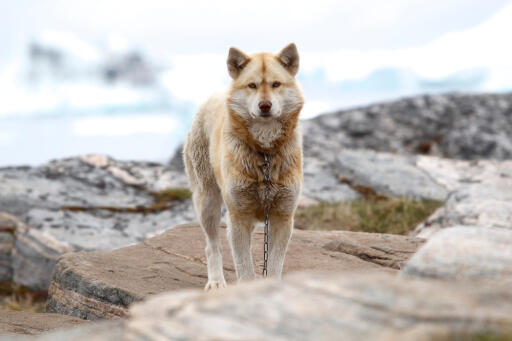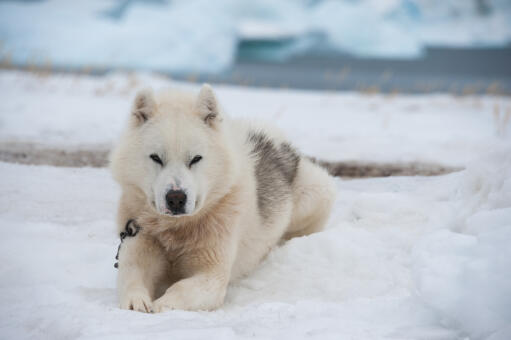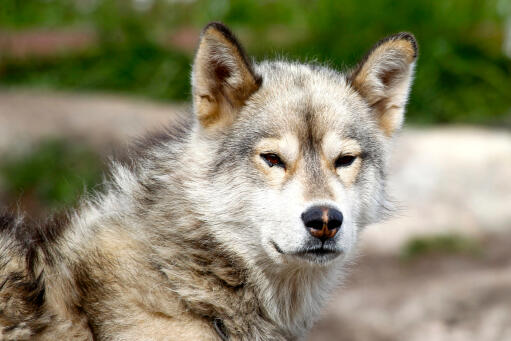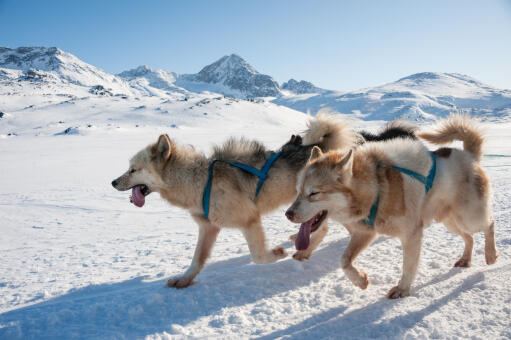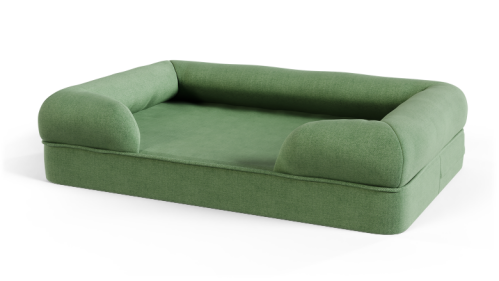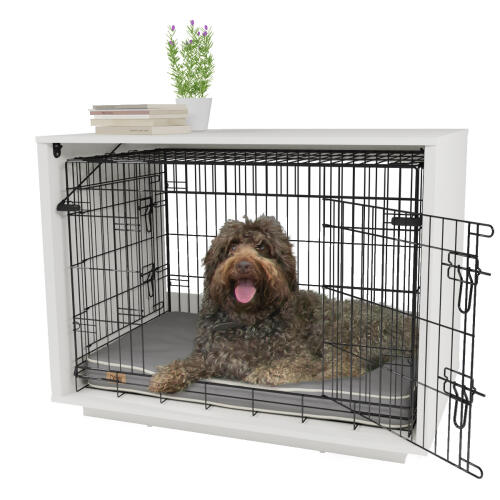Grønlandshund





History
It is believed that the Greenland Dog originates from the Arctic regions of Siberia, Canada and Greenland and is classed as a Spitz type dog. It is one of the oldest breeds, having been brought to the region some 7,000 years ago. Used by the native Inuit people as a sledding dog, the Greenland dog is strong, able to travel miles without tiring and well suited to the freezing conditions of it's homeland. They were one of the first dogs to be registered with the Kennel Club in 1880.
Behaviour
The Greenland dog is loving towards their family, but is a working dog at heart. They will not just settle at home with nothing to do and need vast amounts of exercise to keep them happy. They are friendly with people and other dogs, if raised together and usually accepting of strangers in the home. Good with children if raised with them, but can be very boisterous when they play and are generally unsuitable for younger children, but this does depend on the individual dog.
Bred over thousands of years, the Greenland dogs need a job to do and this usually involves pulling a sled. The breed is more common in Scandinavia and Arctic regions where it is still used as a working dog or for sledding competitions. They can be kept as pets, but the owner will need to devote a serious amount of time in exercising them. They make good running partners and will happily trot along with you for miles. A very long walk and run is needed every day plus active play sessions. They have low guarding and protective skills but are keen hunters and will roam for miles if allowed off lead outside of a secure area. Outdoor carting where a team of dogs pull the owner around forest tracks is becoming more popular and is a great work out for the dog.
Training is time consuming as these are independent thinkers and can take over a home if the owner is not the leader. They still retain their wolf like background and look to you as the pack leader. Training must be firm and consistent, any weakness and the dog will try and take over as is normal within a pack. It takes lots of patience to train a Greenland dog, more so that any other breed. Food based reward and praise can work, but the owner's attitude is the most important thing. Harsh training doesn't work, you need to find the right balance. They are a challenge, but worth the effort. They make great companions once trained.
Greenland dogs have been around for thousands of years and as such have few health concerns. They are very good at 'working through' any health problems, so owners need to keep a close eye on them. Hip dysplasia can be seen in the breed.
Their dense coat needs a good brush every so often but is generally low maintenance. They are happiest in cold weather and dislike the heat, so need somewhere cool to sleep when it gets too hot.
Temperament
Greenland Dogs have an independent and boistrous temperament. This really is a doggy dog and you must expect it to be noisy, rowdy and full of energy. They can form loving bonds with an owner they respect which must be gained through mutual admiration. These dogs need tonnes of exercise or you risk a very unhappy dog. Difficult to train due to their stubborn and independent nature it is important that you are firm and totally consistent or the dog will deem you a pushover. They can be aggressive towards other dogs and may be too boistrous for children.
Health Problems
Health problems that may affect Greenland Dogs include canine hip dysplasia, elbow dysplasia, lens luxation (detachment of the lens inside the eyeball which can cause blindness), glaucoma and bloat.
Breed Details
- Status: Common
- Life Expectancy: 12 - 14 years
- Weight: 29 - 32kg
- Højde: 22 - 25"
- Rare: Nej
- Coat: Lavt
- Grooming Requirements: More than once per week
- Town or Country: Land
- Minimum Home Size: Large House
- Minimum Garden Size: Large Garden
- Breed Type: Working Dog
- Størrelse: Stor
- Energy Level: Medium
- Exercise Required: Over 2 hours

